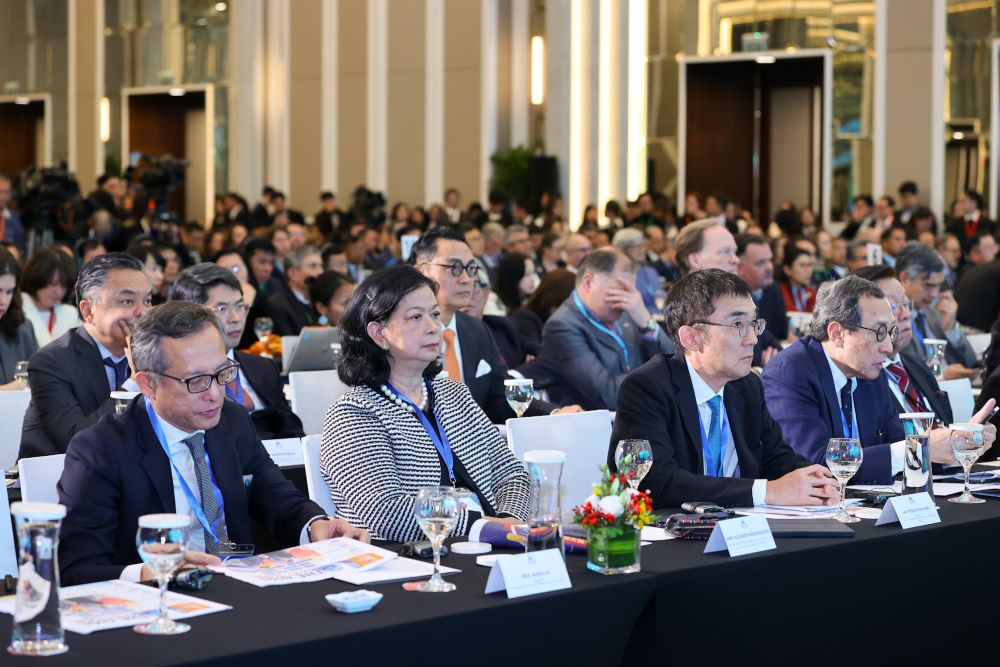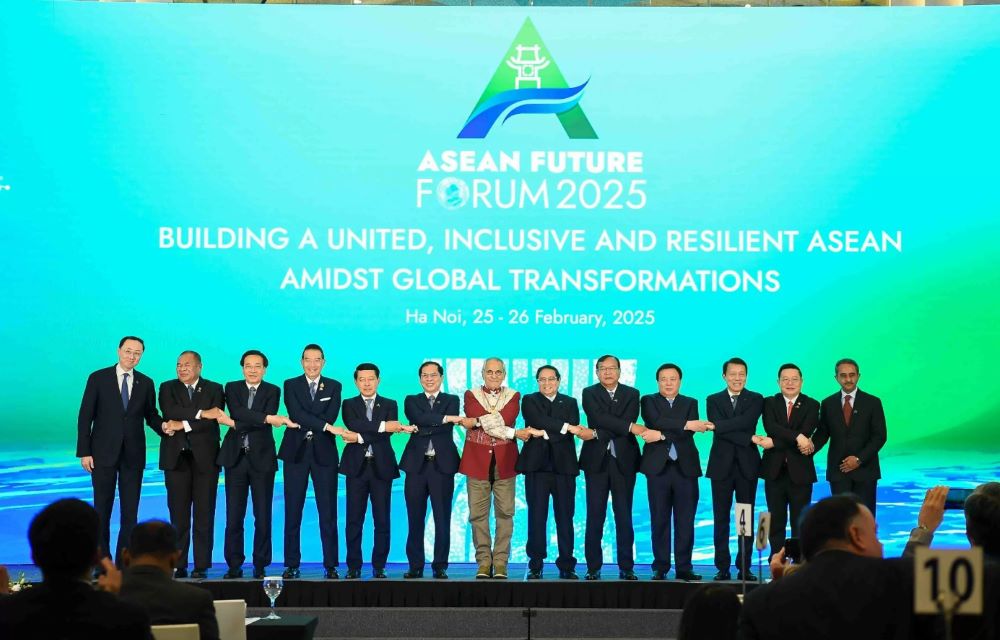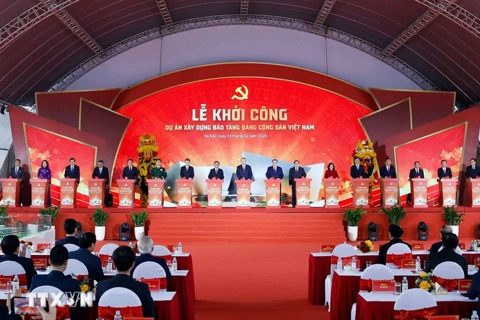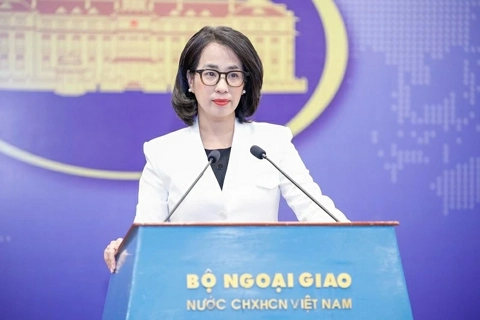ASEAN Future Forum: Critical thinking essential for resilient ASEAN
The Vietnamese Prime Minister said that ASEAN must adapt by leveraging public investment to attract private capital, while enhancing connectivity through infrastructure, streamlined institutions, skilled talent, and effective governance.
Vietnam’s Prime Minister Pham Minh Chinh believes that critical thinking with a sharp strategic vision and a feasible roadmap would be important for ASEAN to strengthen its position and make breakthroughs.
| Vietnam's Prime Minister Pham Minh Chinh speaks at the 2nd ASEAN Future Forum (AFF) opens in Hanoi on February 25. Photos: Nhat Bac/VGP |
The Vietnamese Prime Minister delivered a speech at the opening of the 2nd ASEAN Future Forum (AFF) held today [February 25] in Hanoi. The two-day event themed “Building a United, Inclusive, and Resilient ASEAN amidst Global Transformations” is expected to provide an open platform for generating ideas and discussing key issues shaping the future of the ASEAN region.
To realize this vision, PM Chinh said ASEAN also needs solidarity, consensus, and unity with focused resources and decisive action.
In this spirit, he outlined three strategic priorities, including reinforcing ASEAN’s strategic autonomy by strengthening solidarity and reaffirming its central role; fostering an economically resilient ASEAN by revitalizing traditional growth drivers and advancing new engines of growth, particularly in science, technology, innovation, and digital transformation; and safeguarding ASEAN’s core values and identity.
He suggested three breakthrough actions namely developing a decision-making mechanism that is more flexible, effective, and accountable to uphold consensus while incorporating special provisions for strategic initiatives to drive breakthroughs; strengthening public-private partnerships to harness all available resources for regional development; and deepening ASEAN connectivity, with a focus on infrastructure development, people-to-people exchanges, and institutional harmonization.
“In conclusion, ASEAN needs to effectively adapt to changing circumstances, leveraging public investment to spur private investment and mobilize all societal resources. It becomes important to strengthen connectivity through robust infrastructure and streamlined institutions while improving skilled human resources, with open institutions, seamless infrastructure, and smart governance at the core,” said PM Chinh.
| Vietnam’s Deputy Prime Minister and Minister of Foreign Affairs Bui Thanh Son at the event. Photo: Baoquocte |
At the opening of the ASEAN Future Forum, Vietnam’s Deputy Prime Minister and Minister of Foreign Affairs Bui Thanh Son highlighted the forum’s role as an open, inclusive platform “by ASEAN, for ASEAN” to foster innovative and strategic discussions that complement existing frameworks.
He said the forum is expected to shape ASEAN’s future for the region’s common good, with the hope that it would become an annual event and an incubator for innovative ideas to drive development.
To mark the completion of the ASEAN Community Vision 2025 and prepare for Vision 2045, he noted that ASEAN has transformed into a dynamic community of 10 nations, over 650 million people, and the world’s fifth largest economy, playing a central role in the Indo-Pacific’s economic and security architecture.
However, as rapid geopolitical shifts raise concerns about great power relations and the future of the international order, ASEAN needs to uphold established rules while fostering unity, inclusiveness, and resilience.
He said unity is ASEAN’s greatest strength, resilience is essential to meet global challenges, and inclusiveness ensures equitable development without leaving any member behind.
Key discussion topics at the event include major geopolitical trends, ASEAN’s opportunities and challenges, strategies for maintaining unity and resilience, and the impact of emerging technologies such as AI and quantum computing.
| Overview of the event. Photo: Nhat Bac/VGP |
A united, resilient, and inclusive ASEAN
In a video message, Thai Prime Minister Paetongtarn Shinawatra highlighted ASEAN’s challenges in an increasingly multipolar, fragmented world marked by geopolitical conflicts, economic downturns, technological disruptions, and environmental issues. She stressed that how ASEAN addresses these challenges will shape its future.
She commended Vietnam for hosting the ASEAN Future Forum 2025 and emphasized the need for stronger cooperation, unity, inclusiveness, and resilience. A united ASEAN is key to navigating global shifts, addressing security threats, and ensuring regional prosperity.
Shinawatra also called for proactive dialogue with major powers, fostering strategic trust, and promoting equitable development through collaboration among governments, businesses, and citizens.
| Representatives of ASEAN member states at the event. Photo: Baoquocte |
ASEAN: Symbol of unity, consensus, and action
In a video message to the forum, UN Deputy Secretary-General Amina J. Mohammed emphasized the urgency of addressing escalating geopolitical tensions, climate change, and growing inequality.
Looking ahead to the UN Summit of the Future, she highlighted global commitments to reform multilateralism and take bold action. She urged a shift from words to deeds by investing in sustainable, inclusive growth and tackling climate change.
She stressed Southeast Asia’s key role as a driver of clean energy and green innovation.
On the ASEAN Community’s 10th anniversary, she praised the bloc as a symbol of unity, cooperation, and action, reaffirming the UN’s commitment to supporting ASEAN’s journey towards peace, prosperity, and sustainable development.
Strengthening the EU-ASEAN bond
European Commission President Ursula von der Leyen said the strong ties between Europe and Southeast Asia, rooted in shared values of openness, fair trade, and partnership for peace and prosperity.
She highlighted the Global Gateway initiative, which aims to invest €10 billion in ASEAN by 2027, focusing on infrastructure, trade connectivity, internet access, and clean energy projects.
With the EU as ASEAN’s third largest trading partner, she called for deepening cooperation at a time of global instability.
Von der Leyen affirmed that stronger collaboration will benefit both regions and showcase the resilience of a trusted partnership in a fragmented world.


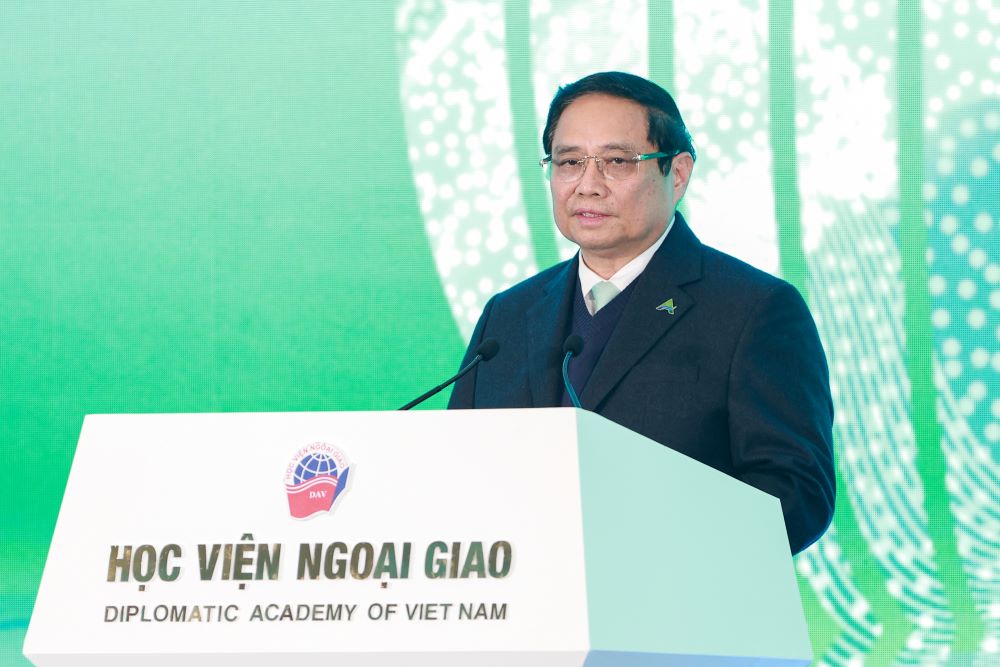
.jpg)
